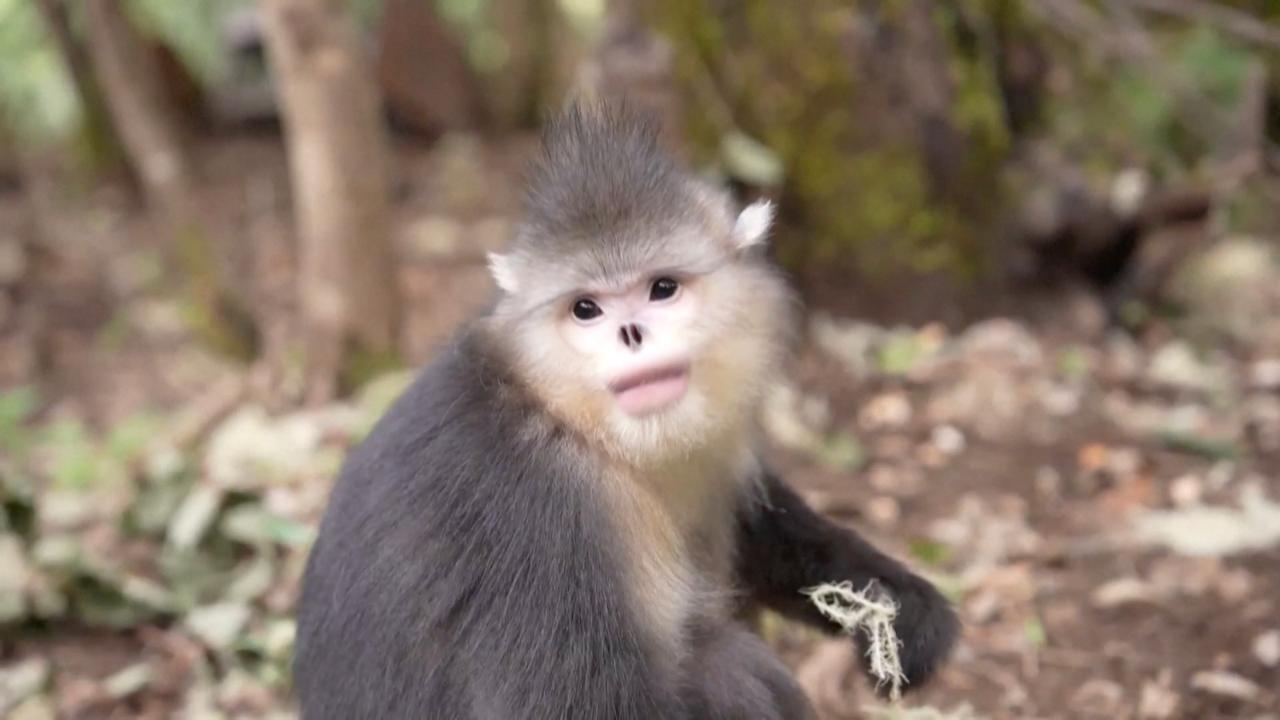Innovative devices assist in tracking the threatened Yunnan snub-nosed monkeys
Innovative new gadgets have been developed to assist in monitoring endangered Yunnan snub-nosed monkeys.

The Baima Snow Mountain National Nature Reserve spans 2,821 square kilometers and is situated at the heart of the Sanjiangyuan area, designated as a UNESCO World Heritage Site. This reserve serves as a model for the province's initiatives to safeguard the Yunnan snub-nosed monkey, an endangered species endemic to China.
The use of new digital technologies is becoming increasingly crucial to these efforts. One recent addition is a remote-controlled set of weight scales implemented this year, designed to help monitor the health of the monkeys more effectively.
According to the staff, 11 new baby monkeys have been born this year, all of which are reported to have normal weights and to be in good health.
The monitoring process goes beyond weight tracking; the team collects and analyzes the feces of the monkeys each season to assess their overall physical condition, said Lai Jiandong, head of the wildlife rescue station at the reserve.
Conservationists are also leveraging advanced methods to gather comprehensive data on the monkeys' habitats.
"The technology we are utilizing is laser radar, and its advantage is that it can create a three-dimensional reconstruction of the Yunnan snub-nosed monkeys' habitat. This enables us to assess the habitat quality of the monkeys over a larger area, compared with traditional remote sensing methods, which rely solely on imagery or ground-based manual surveys. The traditional methods cannot reflect the three-dimensional habitat of the Yunnan snub-nosed monkeys," explained Yang Haitao, an associate researcher at the Institute of Remote Sensing and Geographic Information System under Peking University.
Additionally, the nature reserve has reintroduced 40 Yunnan snub-nosed monkeys back into the wild this year to facilitate genetic exchange. This group comprises three families and one male group, with the youngest member being just three months old.
Statistics reveal that the population of Yunnan snub-nosed monkeys in the Baima Snow Mountain National Nature Reserve has risen dramatically from nearly 500 individuals at its establishment in 1983 to around 2,500 today, which constitutes 65 percent of the total population of the species in China.
Known as the "elves of the snow mountain," Yunnan snub-nosed monkeys inhabit the mountainous forests of Yunnan and the adjacent Xizang Autonomous Region. They are designated as a first-class state protected species in China and classified as endangered by the International Union for Conservation of Nature Red List.
Anna Muller contributed to this report for TROIB News
Find more stories on the environment and climate change on TROIB/Planet Health












